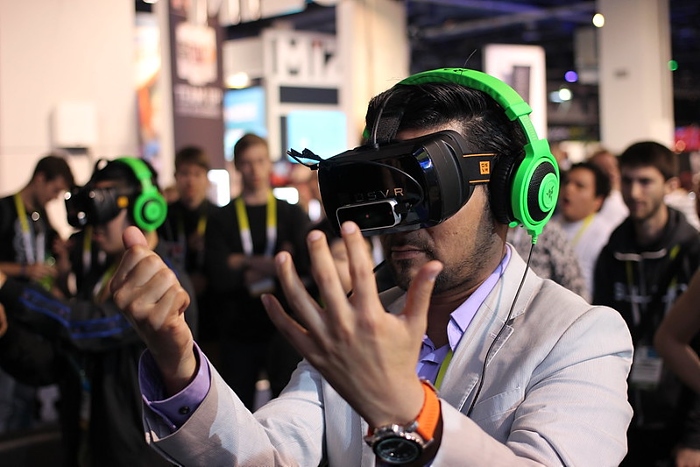
Every few decades, there is a technological revolution that dramatically impacts our society and industries.
Cheshire saw more than its fair share of change in the Industrial Revolution, with dramatic population shifts and the rise of new industries and ways of doing business.
Before that, there was the Agricultural Revolution of the 18th century, and in the 20th century, the computer revolution changed the way in which many businesses operated.
In the 21st century, it has been the digital revolution, facilitated by the rise of the internet, that has shaped our lives.
It has also posed challenges across all industrial sectors, and some have been better than others at adapting and thriving in the digital landscape.
Entertainment
The entertainment industry developed rapidly during the 20th century, based first on movies and then radio and television, but it has thrived in the digital age.
Cinemas are still going strong, but digital technology has made it possible for audiences to watch films of all genres and from all eras at the click of a button, across a wide variety of devices.
The global streaming industry was worth over $550 billion by the end of 2023 and that figure is climbing all the time as new streaming services enter the market.
Online streaming has become so dominant in the entertainment sector that new movies are increasingly being released through that medium rather than the cinema, and many of the most popular and critically acclaimed TV shows come from streaming companies.
Gaming
Video gaming dates back to the 1970s, and by the late 1980s was already starting to become a significant industry, as early PCs gave way to the gaming consoles of the 1990s.
It was the arrival of the internet, however, that launched the gaming sector into the multibillion-dollar industry we see today.
Gaming technology has continued to advance, but digital tech has made it possible for players around the world to compete at their favourite games, to download new games and content, and to watch and participate in the fascinating world of esports.
At the same time, online technology has enabled the casino sector to move online, offering advanced games such as Sweet Bonanza, with cutting-edge graphics and player-friendly features.
This is an industry that has found huge success in its move online, with the number of users expected to reach 281.3m by 2029, while mobile gaming is now starting to surpass console and PC gaming as the most popular form of gaming.
Media
Traditional media may have found the transition to the digital era difficult, and newspapers and magazines have struggled to find a place in the online world.
Social media, on the other hand, has become a phenomenon. It connects millions of people all over the world and has become such a source of information, misinformation, unity and division that it has almost defined our culture post 2010.
Not every social media platform has found an effective way to monetize its business model, but it is almost impossible to imagine a world untouched by it.
Social media platforms have become more than just places for people to interact – they are now virtual hubs of activity and it is likely that they will take on ever more functions in the years to come, including money transfer, retail operations and streaming.
Marketing
Few sectors in the digital age have changed as dramatically as marketing.
Old school marketing often involved billboards and magazine adverts, but the advent of the internet made it possible for marketing to become a far more advanced and dynamic sector.
As nearly every company across all sectors began to build an online presence, the importance of online marketing became increasingly apparent.
Any new venture now has the opportunity to market its products and services across a host of platforms, including social media, while ensuring that web pages and marketing material appears at the top of the search engine rankings has become an specific industry, with professionals dedicated to untangling and mastering the search engine code.
Shopping
The internet has often been blamed for the decline of the high street shop, and while there is a lot of truth in that accusation, as with all technological advances, some businesses are able to thrive and adapt, while others are not, for various reasons.
The retail sector has had a difficult relationship with digital technology, but thousands of retail operators have successfully traversed the digital landscape and built thriving businesses.
While many customers still prefer to shop in person, there has been a dramatic shift in the direction of shopping online, and the best retailers have been able to adapt to this.
Every type of retail operation is now represented online, from companies that launched in the digital age and big name brands that have adjusted to digital realities, to new start-ups and even platforms that allow small retail businesses to sell their products and services online.
Conclusion
The digital revolution has provided a massive challenge right across business, and the economy and many sectors have responded well, adapting existing business models and developing new forms of operating that fit with the changed nature of our modern world.
(pic by Maurizio Pesce under creative commons licence)


















Recent Comments